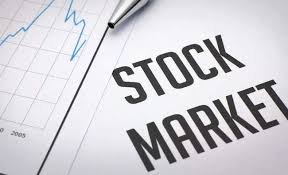The Nigerian capital market is witnessing its most remarkable rally under any civilian administration since 1999, with stocks posting historic gains under the leadership of President Bola Ahmed Tinubu.
The Nigerian Exchange (NGX) All-Share Index (ASI) has surged by an astonishing 136 per cent since Tinubu assumed office on May 29, 2023—catapulting from 55,769.28 points to around 131,000 points by mid-July 2025.
This milestone marks the most significant bull run at this stage of any presidency since Nigeria’s return to democracy, outpacing past performances under Presidents Buhari (4.47 per cent gain in 2016), Jonathan (47 per cent in 2013), and Obasanjo (115 per cent by July 2001).
Under President Umaru Musa Yar’Adua, the market had declined by 49 per cent due to the 2008 financial crisis.
In terms of market capitalization, the NGX has expanded from roughly N30 trillion in May 2023 to over N75 trillion today—an eye-popping N45 trillion increase, despite naira devaluation and broader macroeconomic pressures.
Despite weakened consumer spending, many companies—particularly in banking, telecoms, and oil & gas—have reported strong topline growth, further lifting investor sentiment.
While foreign investors remain somewhat cautious, domestic institutional and retail investors have driven much of the recent market rally.
In the first quarter of 2025, local transactions accounted for N1.418 trillion (63.63 per cent) of the total N2.23 trillion market activity.
Between May 2023 and May 2025, domestic investors contributed N9.375 trillion to equity trading, or 81 per cent of the total N11.535 trillion in transaction value.
Foreign investors contributed N2.159 trillion over the same period, reflecting continued hesitancy amid currency volatility and policy uncertainty.
“This level of domestic participation is unprecedented and signifies growing confidence in the market, despite Nigeria’s inflationary environment and limited fixed-income alternatives,” said Tolu Adebayo, a Lagos-based equities analyst.
Banking added over N7 trillion in market capitalization. GTCO and Zenith Bank led the charge with gains of N2 trillion and N1.7 trillion respectively.
MTN Nigeria and Airtel Africa saw increases of N3 trillion and N1.8 trillion respectively. Aradel Holdings alone added over N2 trillion since its listing in 2024.
Anticipated IPOs from Dangote Fertilizer and NNPC are expected to attract even more capital into equities.
As of mid-July 2025, Nigerian equities are already up 27.84 per cent year-to-date. Analysts expect the market to finish July with double-digit monthly gains if the current momentum holds.
“If this rally sustains through December, President Tinubu may go down as the most consequential leader for Nigerian capital markets,” said Dr. Ada Ihenacho, an investment strategist at Afrivest Advisory.
“However, stock market returns don’t always translate to broad-based prosperity.”
Despite the bullish market, the broader Nigerian population continues to grapple with economic hardship.
Inflation has stayed in double digits, food prices have surged, and real wages have declined. For many Nigerians, the impressive gains on the NGX feel distant from everyday realities.
“Investors are smiling, but ordinary citizens are squeezed,” noted Segun Alade, a senior research fellow at the Lagos School of Economics.
“Stock performance is just one metric. The true legacy of any administration is how it impacts employment, living standards, and service delivery.”
Still, for investors and capital market observers, the numbers speak clearly: Nigeria is in the midst of a historic stock market rally.
